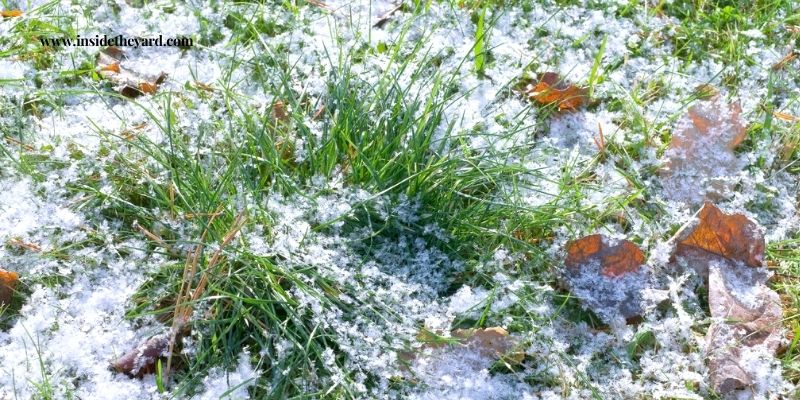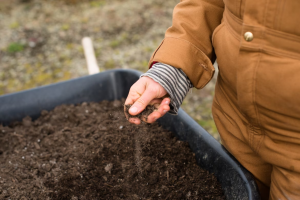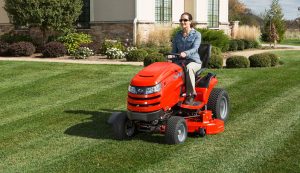Is Ice Melt Safe For Grass And Pets? Know The Eco-Friendly Deicer
Will ice melt kill grass? Sometimes, the deicing chemicals dehydrate the soil and destroy the grass. So, only eco-friendly ice unfreezing can make the ice melt safe for grass.
For your lawn grass health, you have options among rock salt, calcium chloride, magnesium chloride, CMA, and urea. Between rock salt and CMA, rock salt is not your eco-friendly option. There are magnesium chloride and calcium chloride also.
Fix your choice of a budget-friendly and effective deicer which will melt ice quickly upon your grass in a healthy way. This content will help you to find your preferable ice melting chemical.
Table of Contents
How Ice Melt Safe For Grass While Using Chemicals

Before going to the main conversation, let’s look at a small chart of what chemicals are used for ice melt that doesn’t kill the grass.
| Chemicals Name | Working Temperature | Threats | Usefulness |
| Calcium Chloride | 25° | Acidic to metal. | Works fast |
| Magnesium chloride | 20° | Acidic to metal | Less corrosive plants and pets |
| Sodium Chloride (Rock Salt) | 20° | Harmful to vegetation and pets | Not harmful to concrete |
| Potassium chloride | 12° | harmful like rock salt | Works well with rock salt |
| Urea | 15° | Make lawn dirty after melting ice | Suitable for soil and plants |
| Calcium magnesium acetate (CMA) | 20° | It does not work below 20° temperature | Not harmful to vegetation |
Chemicals for ice melting dissolve ice quickly, even in rough cold weather, but they dehydrate the soil and gradually kill the grass. These deicing elements are also harmful to concrete and the environment.
Now the question arises of how the chemicals ice melts are safe for pets and grass?
The answer is, the chemicals that take moisture from the air won’t dry out the soil. Let’s discuss some popular and useful chemicals for eco-friendly ice melting jobs.
Eco-friendly ice melting technics safe for grass
Avoiding chemicals can’t be a solution in January when lawn ice won’t melt on its own. You have to use ice melting products safely with proper technics.
Natural Deicer: No Chemicals, No Harm
Let’s start with some Nntural elements for ice melting. As these elements have good traction, they are eligible for ice melt. You can use:
- Sand
- Kitty litter
- Sawdust.
Magnesium Chloride: Safer For Plants And Animals
If you care more for your grass and pets, magnesium chloride will be the best choice. It’s a salt that decreases ice build-up and increases melting without less residue.
Magnesium chloride captivates moisture from the air. It cuts ice production as you spread this salt before the winter storm.
Best plant-safe ice melt will save your lawn greenery in the coldest time.
| Pros | Cons |
| Melt ice very fast, even at 0°F | Expensive |
| Less corrosive to concrete, plants, and pets. | Need larger amount for melting ice |
| Less irritating to the skin. | Using an excessive amount of salt damage concrete and plants. |
| Can be used before and during snowfall. | |
| Leaves little residue | |
| Environment friendly |
Calcium Chloride: Works Fast At Extreme Cold
Calcium chloride ice melt is most used for deicing the ground, lawn, and roads. It generates heat and absorbs moister from surroundings. As a result, the ice melting functions are working so fast.
It’s a popular option for deicing as it requires less amount and works faster. But if you have to care for your plant life, avoid it instantly. Also, keep these chemicals away from your car because it is acidic to metal.
| Pros | Cons |
| Works very fast in the coldest weather (-25°F) | Expensive |
| Need half amount then magnesium chloride for melting ice. | Corrosive to metal. |
| Less corrosive to concrete | Harmful for plants, soil, and pets. |
| Leaves no residue |
Sodium Chloride: Inexpensive and commonly used
Sodium chloride or rock salt is another most used medium for ice thawing. It’s comparatively cheap, that’s why people choose it for their grounds. Another facility is it can deice in minimal freezing point.
But this rock salt is a more toxic element. As experts advise, avoid it for vegetation. Most of the fellows use it for roads.
| Pros | Cons |
| Budget-friendly | Doesn’t work in extreme cold. |
| Less corrosive to concrete. | Stops working below 10°F |
| After melting, ice keeps the surface dry | Harmful and toxic tor plants |
| Add traction | Leaver powdery residue. |
Calcium Magnesium Acetate: Environment Friendly
It’s an eco-friendly chemical commonly named road salt. It’s a biodegradable chemical without nitrogen or chlorine.
CMA works fine, even below 15°F. It resists sticking to the snow. They are widely used for pre-treatment. If you need a less expensive chemical, CMA will be the best choice for you.
| Pros | Cons |
| Safe for vegetation. Less toxic. | You have to use a shovel lightly to clean the ice |
| Prevents re-freezing, | |
| Less corrosive to concrete |
Urea: Also alternative To The Fertilizer
Urea is not a salt. It’s a fertilizer commonly used in agriculture. But it has ice melting power though it won’t work in extreme cold. So you can use it on your lawn safely.
As it is not salt, it is safe for plants and pets, but it is harmful to water. So use urea for a proper amount that it could not wash away to mix with drain water hugely.
| Pros | Cons |
| Fertilizer | Leaves watery residue that can cause an accident |
| Safe for pets | access nitrogen is harmful to plants. |
| Expensive |
Tips Before Applying Any Deicer For Secure Result
- Use hand gloves, goggles, and musk before spreading any chemicals.
- Early morning is not an ideal time for a melting job. You may face black ice.
- Clear the snow with a shovel at first. Then apply chemicals.
- Do not use an access amount of chemicals. Follow the instructions.
- Avoid new or undone concrete.
- Stay away from your pets and children while using deicer.
This Video Will Help You Too!
Frequently Asked Questions (FAQs)
Does ice melt hurt grass?
It depends. If you use any toxic chemicals harmful to plants, it will also harm the grass. These toxic absorb the moisture from the soil and dehydrate the grass. The non-toxic or less toxic chemicals take humidity from the air.
Final Words
All the above chemicals are non-toxic or less toxic chemical ice melt safe for grass. They take moisture from the air. As a result, the plants remain hydrant. Urea can be good fertilizer, but for melting ice, you need a lot of urea which will increase the nitrogen level of the soil. In my opinion, CMA and magnesium chloride can be the best solution for your lawn.




